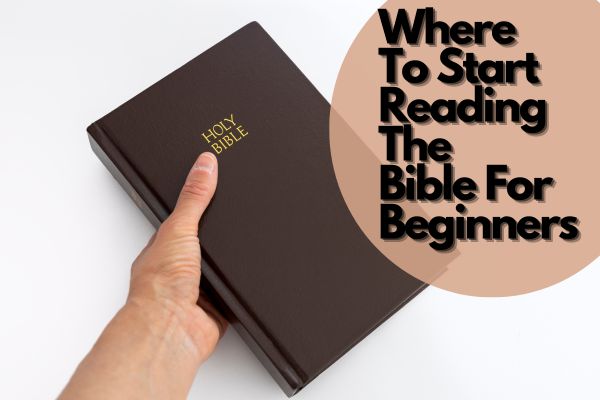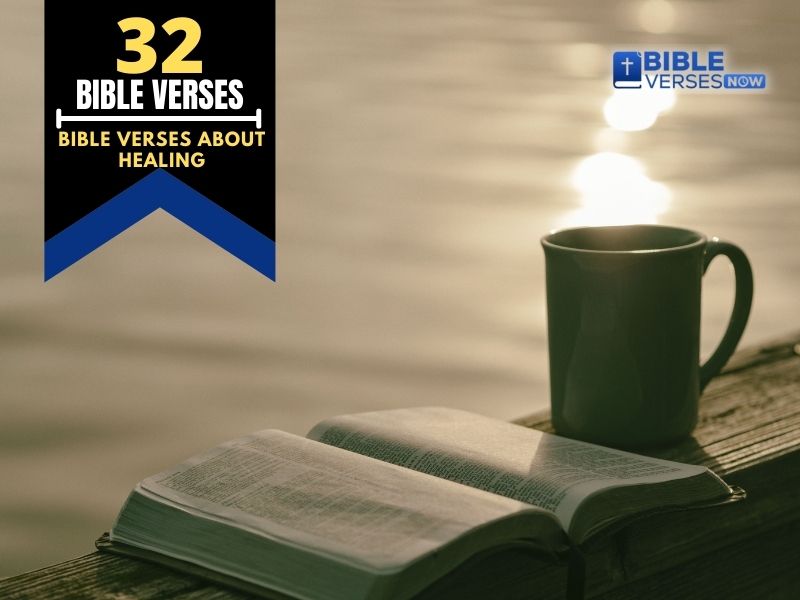Figuring out where to begin with the Bible can be overwhelming. If you’re searching for Where To Start Reading The Bible For Beginners, this article will guide you through
With so many books and chapters, it’s easy to get lost. But don’t worry; we’ve got you covered. This article will provide places to start reading the Bible for beginners.
Where To Start Reading The Bible For Beginners
1. The Book Of Genesis
The book of Genesis is the first book of the Bible, and it tells the story of creation, the first humans, and the beginning of the world as we know it.
2. The Book Of Exodus
The book of Exodus tells the story of the Israelites’ enslavement in Egypt and their deliverance by God through the leadership of Moses.
3. The Book Of Psalms
The book of Psalms is a collection of poetry and songs that express a range of emotions, from joy and gratitude to sadness and despair.
4. The Book Of Proverbs
The book of Proverbs contains wisdom and practical advice for living a wise and righteous life.
5. The Book Of Matthew
The Gospel of Matthew is the first book of the New Testament and tells the story of Jesus’ life, teachings, and ministry.
6. The Book Of Mark
The Gospel of Mark is a fast-paced account of Jesus’ ministry, focusing on his actions more than his teachings.
7. The Book Of Luke
The Gospel of Luke is a detailed account of Jesus’ life and teachings, and it emphasizes his compassion for the poor and marginalized.
8. The Book Of John
The Gospel of John is a theological account of Jesus’ life, emphasizing his divinity and the importance of belief in him.
9. The Book Of Acts
The book of Acts tells the story of the early Christian church, from Jesus’ ascension to the spread of the gospel throughout the Roman Empire.
10. The Book Of Romans
The book of Romans is a letter written by the apostle Paul to the Christians in Rome, explaining the nature of salvation and the role of faith in Jesus.
11. The Book Of 1 Corinthians
1 Corinthians is a letter written by Paul to the church in Corinth, addressing issues of division and immorality.
12. The Book Of 2 Corinthians
2 Corinthians is a follow-up letter from Paul to the church in Corinth, defending his apostleship and encouraging them to be generous.
13. The Book Of Galatians
The letter to the Galatians is another one of Paul’s letters, defending the gospel of grace and urging the Galatians to reject legalism.
14. The Book Of Ephesians
The letter to the Ephesians is a letter from Paul, emphasizing the unity of the church and the importance of living a holy life.
15. The Book Of Philippians
The letter to the Philippians is a letter of encouragement and thanksgiving from Paul, urging the Philippians to rejoice in the Lord always.
16. The Book Of Colossians
The letter to the Colossians is from Paul, addressing false teachings and urging the Colossians to live Christ-centered lives.
17. The Book Of 1 Thessalonians
The first letter to the Thessalonians is a letter from Paul, encouraging the believers in Thessalonica to remain faithful in the face of persecution.
18. The Book Of 2 Thessalonians
The second letter to the Thessalonians is another letter from Paul, addressing false teachings and urging the Thessalonians to remain steadfast in their faith.
19. The Book Of 1 Timothy
1 Timothy is a letter from Paul to his protégé Timothy, encouraging him to stay faithful to the gospel and to teach sound doctrine.
20. The Book Of 2 Timothy
2 Timothy is another letter from Paul to Timothy, written near the end of Paul’s life and urging Timothy to continue in his ministry.
21. The Book Of Titus
The letter to Titus is a letter from Paul, encouraging Titus to appoint church leaders and teach sound doctrine.
22. The Book Of Philemon
The letter to Philemon is a personal letter from Paul to Philemon, urging him to forgive his runaway slave Onesimus and to receive him back as a brother.
23. The Book Of Hebrews
The letter to the Hebrews is a powerful exposition of the superiority of Jesus Christ over the Old Testament sacrificial system, and it encourages believers to persevere in faith.
24. The Book Of James
The letter of James is a practical letter that encourages believers to live out their faith through good works and to avoid hypocrisy.
25. The Book Of 1 Peter
The first letter of Peter is a letter of encouragement to believers who are facing persecution, reminding them of their identity as God’s chosen people and encouraging them to remain faithful.
26. The Book Of 2 Peter
The second letter of Peter is a warning against false teachers who would lead believers astray, and it encourages believers to grow in their knowledge of Christ.
27. The Book Of 1 John
The first letter of John is a letter of assurance to believers, reminding them of the reality of their salvation and the importance of love.
28. The Book Of 2 John
The second letter of John is a brief letter of encouragement and warning, urging believers to walk in truth and avoid false teachers.
29. The Book Of 3 John
The third letter of John is a personal letter of commendation to a fellow believer named Gaius, and it encourages hospitality and generosity.
30. The Book Of Revelation
The book of Revelation is a highly symbolic and apocalyptic work that describes the end of the world and the triumph of Christ over evil.
Reasons To Read The Bible As A Beginner
1. To learn about God and His character.
2. To gain wisdom and knowledge.
3. To find comfort in difficult times.
4. To receive guidance and direction.
5. To strengthen your faith.
6. To gain a better understanding of Jesus and His teachings.
7. To find hope in the promises of God.
8. To discover your purpose and calling.
9. To learn about the history of Christianity.
10. To learn about salvation and eternal life.
11. To find encouragement for daily living.
12. To learn about prayer and its power.
13. To gain a deeper understanding of forgiveness.
14. To learn about the Holy Spirit and His role in our lives.
16. To gain insight into the human condition.
17. To learn about the importance of love and compassion.
18. To gain a better understanding of sin and its consequences.
19. To learn about the importance of faith and obedience.
20. To gain a better understanding of the Bible as a whole.
21. To find peace amid chaos.
22. To learn about the nature of God’s kingdom.
23. To gain insight into the end times and prophecy.
24. To find strength in times of temptation.
25. To learn about the importance of community and fellowship.
26. To better understand the relationship between God and humanity.
27. To find inspiration for creative expression.
28. To learn about the role of the Church in the world.
29. To gain insight into the nature of suffering and perseverance.
30. To find joy in the promises of God.
Benefits Of Reading The Bible
1. It helps you to grow in your faith.
2. Provides guidance and wisdom.
3. Gives comfort and encouragement during difficult times.
4. It helps you understand God’s character and His plan for your life.
5. It helps you to overcome temptation and sin.
6. Provides insight into human nature and relationships.
7. It helps you to understand the history of God’s people.
8. It Gives you a deeper understanding of Jesus and His teachings.
9. Helps you to pray and communicate with God.
10. It helps you to live a more fulfilling and purposeful life.
11. It Provides a sense of peace and hope.
12. It helps you to see the world from God’s perspective.
13. It helps you to discern truth from falsehood.
14. Provides a sense of community with other believers.
15. It helps you to share the gospel with others.
Conclusion
Starting to read the Bible as a beginner can be both exciting and overwhelming. However, it is a journey that is well worth taking.
With the places to start reading the Bible and reasons to read the Bible as a beginner listed above, you’ll have a solid foundation to begin exploring the Word of God.
Remember to approach the Bible with an open mind and heart, and allow the Holy Spirit to guide you on this life-changing journey.







